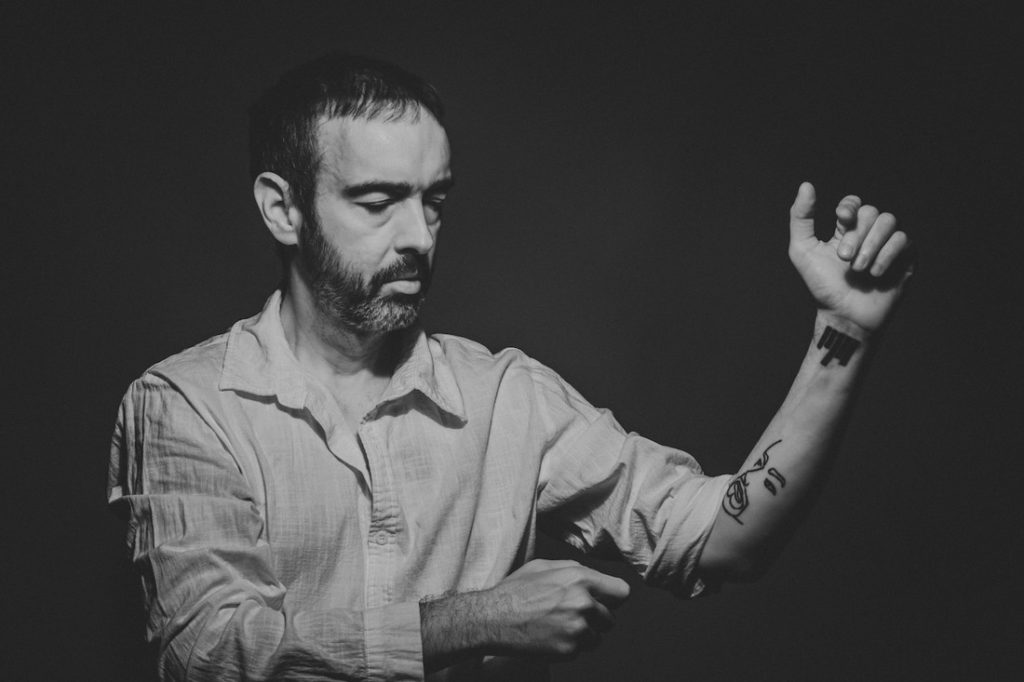
“Honestly, nowadays, making an album is not a healthy thing,” says Jonathan Bates. “Spending a year and a half making a collection of music and then putting it out and people literally giving it 30 minutes is not good for the soul.”
Bates, though, released his fifth album as Big Black Delta, Adonai, last February. It’s a fantastic mix of synthpop and rock. Since the album landed in my inbox earlier this year, I’ve spent much more than a half-hour listening to it.
“I’ve been doing this for so long that I don’t give a shit anymore, so I’m the perfect person to do it,” Bates says of making an album, “but when I talk to younger artists, and other artists of any kind, it is soul-crushing for the first time, when you’re like, ‘I spent all this time’ and I’m like, ‘that’s part of the gig.’”
It’s a refreshingly honest statement in a timeline where those seem to be in short supply. Making music or art or, really, anything creative, is hard and there’s never any guarantee that what you launch into the ether will resonate with just one person for longer than it takes to scroll past it. “That’s the hero’s journey. It’s what all Greek myth is about. It’s what all movies are about,” says Bates. “You start off as this naive little fucker and you go through some hell and you come out wiser for it.”
He adds, “Now, there are very rare moments and rare people that don’t require the movement of mountains for this to happen and I’m not one of them. Most of us are not. They are the exception to the rule and they have a completely different set of parameters to their lives than those of us that don’t, so it’s okay.”
Bates says that he hopes that maybe 10 or 15 years from now, people will listen to Adonai and then they’ll make a judgment about it. This time around, he’s not making an album for a conventional audience, although he will be playing for one on Thursday, May 8, at Highland Park’s Lodge Room. “If I really intend on separating you from your body for an hour, it could be like magic,” Bates says of the show. “That’s what I’m going for.”
The story behind Adonai begins with a belief that Bates holds. “I really believe that the human collective consciousness, which is something that we’ve forgotten we’re a part of, is being reawakened at this time,” he says. And “accepting and submitting to this collective consciousness” was part of the process for making Adonai. Bates had started meditating seriously and channeling, a practice that he says can mean different things to different people.
“Channeling is just being open and communicating with the other side,” Bates explains. “That could be a million things. That could be your intuition, that feeling like when you have an instinct that someone is talking about you or you think of somebody out of nowhere and they call you. There are all these different shades.”
All of that changed how he approached making music. “Before, I was writing music from a naive human place,” he says. In other words, he was making music for the attention of other humans. This time around, he thought, “Hey I’m going to make music for the other side, like shit that I would listen to if I didn’t have to have a body.”
“What would you play— I say this term loosely— but what would you play your angels?” he asks rhetorically. “If you had them, what kind of music would you play them to be like ‘hey, check this out.’”
That completely changes the objective of making music and the process along with it. The songwriting happened quickly, but the bigger breakthrough came when Bates started singing. “Ask any singer or human being, they hate their own voice,” he says. Where singing had previously been a challenge, this time, he says, “it was like opening my body.”
Take a listen to Adonai and you can hear what Bates means. His voice is strong throughout an album where he takes a lot of stylistic shifts. On “Move Forward,” he taps into a gravely tone. With the minimal synths and rousing backup choir, it’s a sound that recalls Leonard Cohen’s album, I’m Your Man. For “Say Hi to Venus,” his voice is hushed, almost ethereal.
Adonai is an eclectic album. There’s even a little house or, more accurately, space age cartoon house, on “Pik Pok,” as Bates says he was influenced in part by mid-20th century composers like Esquivel! and Franz Liszt’s Hungarian Rhapsody No. 2, which was famously used in the film Who Framed Roger Rabbit?
“I get bored very quickly, so writing a whole record of all the same kind of music to me, it just doesn’t make sense,” says Bates, especially considering that he wasn’t making the album for a standard human audience. “When you start making art of any form and you’re doing it professionally, there’s a part of it that you’re asking for approval. There’s nothing wrong with it, it’s just part of the process,” he says. “When you move to an intelligence that’s infinitely more intelligent than you and infinitely more compassionate and loving, what would you make that being to show love to it? It’s a completely different vibe.”
Catch Big Black Delta live at the Lodge Room with support from Double Wish on Thursday, May 8, 2025.Tickets for the all ages show are available through the venue’s website. Adonai is available to stream or purchase on multiple platforms.
Liz O. is an L.A.-based writer and DJ. Read her recently published work and check out her upcoming gigs or listen to the latest Beatique Mix. Follow on Instagram or Bluesky for more updates.
Keep Reading:
Fear is the Mind Killer: Inside the World of Optometry